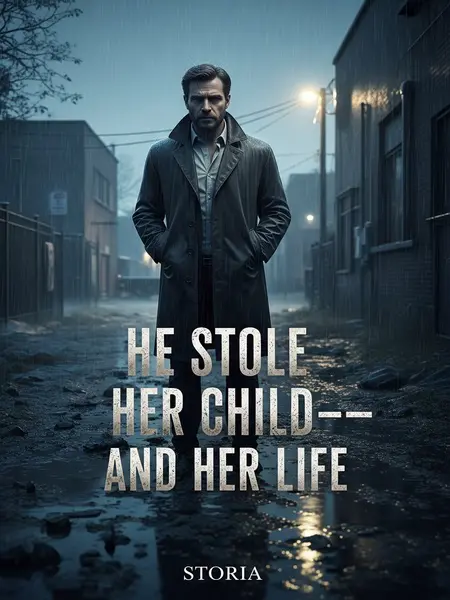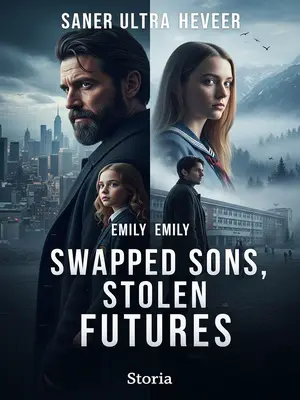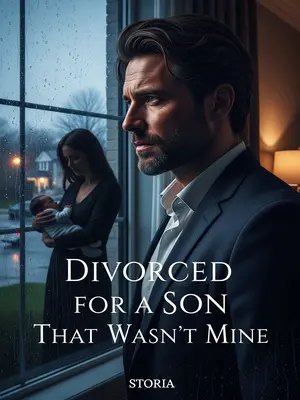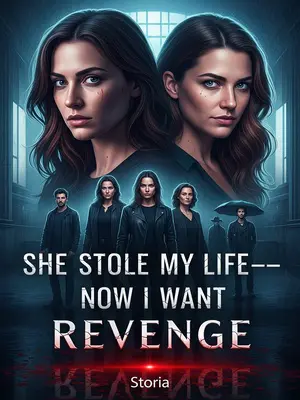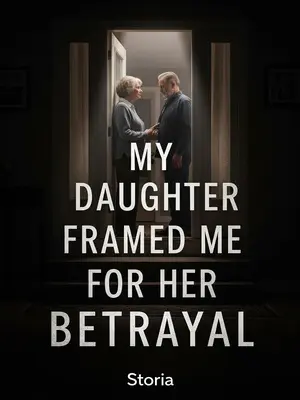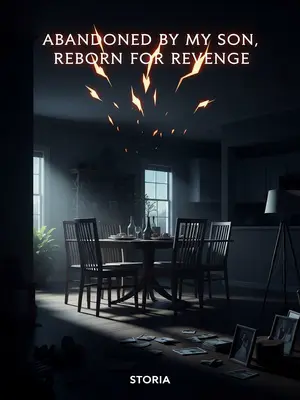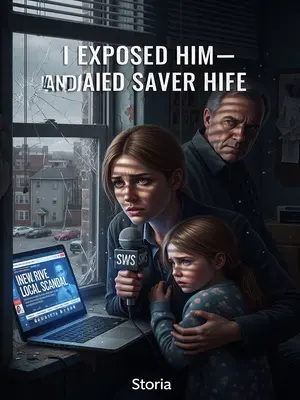Chapter 2: Friends, Lovers, and Liars
Rookie Reed concluded that, given her age and her symptoms—dry eyes, neck pain, and tendonitis—she was likely an accountant.
It was a leap, but not a wild one. I thought of all the late nights I’d seen my own accountant pull, hunched over receipts. Reed’s logic made sense in a way only a fresh pair of eyes could see.
“Of course,” he added, “it’s just a guess.”
He shrugged, giving himself an out. Still, you could tell he’d already started building the case in his head. I made a note to keep an eye on him.
Bold guess. Hell, could’ve sent us off chasing our tails.
I felt a pang of worry—what if he was wrong? But something about his quiet certainty made me want to follow the thread.
I had a feeling he’d noticed something else, but he kept it to himself, clearly leaving himself an out.
He looked at the crime scene like he was seeing a second layer beneath everything. Sometimes, the youngest guy in the room is the only one not blinded by routine.
Surprisingly, four days later, an elderly woman reported she couldn’t contact her daughter-in-law. The missing woman was named Emily Foster, twenty-eight, thirty-six weeks pregnant.
She came into the station clutching a worn purse, hands trembling. She’d called every hospital, every friend. You could see the hope dying in her eyes with every word.
Figures. Accountant. Real estate group.
As soon as she said it, I caught Reed’s eye across the room. He didn’t smile, but there was a glint of something—maybe relief, maybe dread.
Almost at the same time, an abandoned baby was found two miles from the crime scene.
Jogger found him. Poor guy’s probably still having nightmares. The baby was left under a highway overpass, bundled up so tight it was a miracle he survived the night. EMS said he was cold, but alive.
The child was premature, thin and shriveled, wrapped in a cotton-linen sheet—very clean.
The sheet looked almost ceremonial. Like someone cared. The contrast—hell, it made my skin crawl.
DNA confirmed it was Emily Foster’s lost baby.
The lab called it a miracle. I remember Callahan shaking his head, muttering, “Sometimes God’s the only witness.”
When the elderly woman came to identify the body, Emily Foster’s husband rushed back from out of town. He was a small contractor working in the county. After Christmas, he’d gone to a project site, only calling his wife twice.
Work boots, jeans caked with mud. Grief in his eyes—raw, ugly. He hung onto his mother like he was drowning.
Originally, the old lady planned to move to the city after the holiday to help her daughter-in-law during her maternity leave, but her husband had broken his back. By the time she finished dealing with family matters, she couldn’t reach Emily anymore.
She kept apologizing, as if she could’ve changed fate by coming sooner. I saw Reed listening quietly, taking in every detail.
Eight years older. Weathered face, hands full of calluses. A working man.
He didn’t try to hide it. In that moment, he was just a man who’d lost everything.
“What happened? Everything was fine at Christmas. I just went out to work, and now, when I come back, she’s gone? The baby’s gone too… What happened?”
His voice cracked, echoing down the hallway. Nobody had an answer for him.
What happened?
The kind of question that lingers. Makes every cop in the room feel helpless. I hated it.
The autopsy showed Emily Foster died between 8 and 10 p.m. on March 8. There were large bruises on both upper arms, she’d taken sleeping pills before death, and the cause was mechanical asphyxiation.
The ME’s report was clinical, but the details were haunting. The bruises suggested someone had held her down. The sleeping pills meant she probably never saw it coming.
Not a rope. Not a belt. Something soft. Scarf, maybe. Towel.
We started checking stores, asking about recent purchases. The idea that something so ordinary could become a murder weapon was chilling.
There were undigested strawberries in her stomach. Rookie Reed and I searched the area around the crime scene and found a newly built strawberry farm four miles away. The owner, after seeing her photo, said that on the day of the crime, Emily came with two others by car—one was a man with a limp, and the other was a pregnant woman.
The owner remembered them because they were laughing, taking pictures. The man with the limp moved slowly, but he was attentive. The second woman, supposedly pregnant, had a bright scarf tied around her waist.
The two women chatted the whole time. The man busied himself picking strawberries and handing out water, and they seemed happy together.
Said they looked like a cute bunch. Like nothing could touch them.
After six o’clock, the three left without having dinner.
She watched them get into their car, red taillights fading into the dusk. Nothing seemed out of place.
Captain Callahan tapped the whiteboard, which was covered in sticky notes. “These two must be Emily’s friends. Why did they leave her alone in the suburbs? Did something happen—did Emily ask to get out? Or did the two of them plot to kill her?”
The board was a mess of timelines and photos. Callahan’s voice was tight, frustration seeping through. We were running out of theories.
Whoever the murderer was, our first priority was to find those two people.
You could feel the tension—everyone was on edge. Reed kept circling the board, lost in thought. I started making calls to Emily’s coworkers.
Emily’s phone was missing, and her husband was busy at work and didn’t know her social circle, so we started at her company, looking into her close contacts.
HR records. Emails. Even the janitor—who did Emily eat lunch with? We built our list, one name at a time.
Soon, we zeroed in on a young couple.
Their names kept popping up—always together, always around Emily. It was almost too neat. That’s what bothered me.
The man was Greg Matthews, thirty-one, a real estate consultant at the same company as Emily, though in a different department. They worked together often.
Greg had a reputation for being the office charmer. Good with clients, quick with a joke. But there were rumors about his temper, too.
People said Greg was warm-hearted. Gave Emily artificial tears for her dry eyes. Nice guy, right?
He was the kind of guy who remembered birthdays and bought coffee for the admin staff. People liked him, but nobody really knew him.
The woman was April Grant, twenty-eight, currently unemployed.
April? Bit of a mystery. Quit her last job out of the blue. Social media—just old college pics, nothing recent.
Greg came from a working-class family; April from an academic one.
Their backgrounds couldn’t have been more different. Greg’s dad worked at the Ford plant; April’s parents were both college-educated, with a bookshelf in every room.
They went to the same college—Greg was two years ahead, had been vice president of the student government, and was popular with girls. April grew up privileged, was lively, and deeply infatuated with Greg.
Old yearbooks showed them at dances, April always on Greg’s arm. Friends said she followed him everywhere, even after he graduated.
Only Greg was home when we visited. Place was too quiet.
His apartment was neat, almost sterile. The kind of place where everything had its spot. There was a faint smell of lemon cleaner and something earthy—maybe potting soil.
He limped on one leg. Right hand bandaged. Cooking, of all things. Opened the door holding a kitchen knife—made me jump.
He flashed a quick smile, apologizing for the knife. "Cooking helps me think," he said, but his eyes were wary. The bandage looked fresh, the limp pronounced.
After letting us in, Greg went back to the kitchen and closed the door.
I watched him through the glass, the way he moved—deliberate, careful. Something about the way he kept his back to us set my teeth on edge.
No small talk. I just asked—where were you on March 8?
No point beating around the bush. In murder cases, time is everything.
Greg looked professional and smiled kindly. “Women’s Day—I took April and Emily to the strawberry farm. We left around one in the afternoon. There was a huge traffic jam, so we didn’t get there until after three. We picked strawberries until sunset.”
He rattled it off like he’d practiced in the mirror. Every detail, neat as a pin.
I asked, “Did you all return to the city together?”
He didn’t even hesitate. His eyes never left mine.
He shook his head. “Emily left separately. We planned to eat at a farmhouse, but I got a call for urgent overtime—a big order, the client was pushing to sign. I had to rush to the project to gather materials. Emily didn’t want to delay me, so she said she’d take a cab back. She told me and April to go ahead.”
He said it like it was the most reasonable thing in the world. But something about the way he said "take a cab" bothered me. Who lets a pregnant woman fend for herself in the suburbs?
I frowned. “Emily was pregnant, and you were okay leaving her alone in the suburbs?”
I let the skepticism show in my voice. I wanted to see if he’d flinch.
